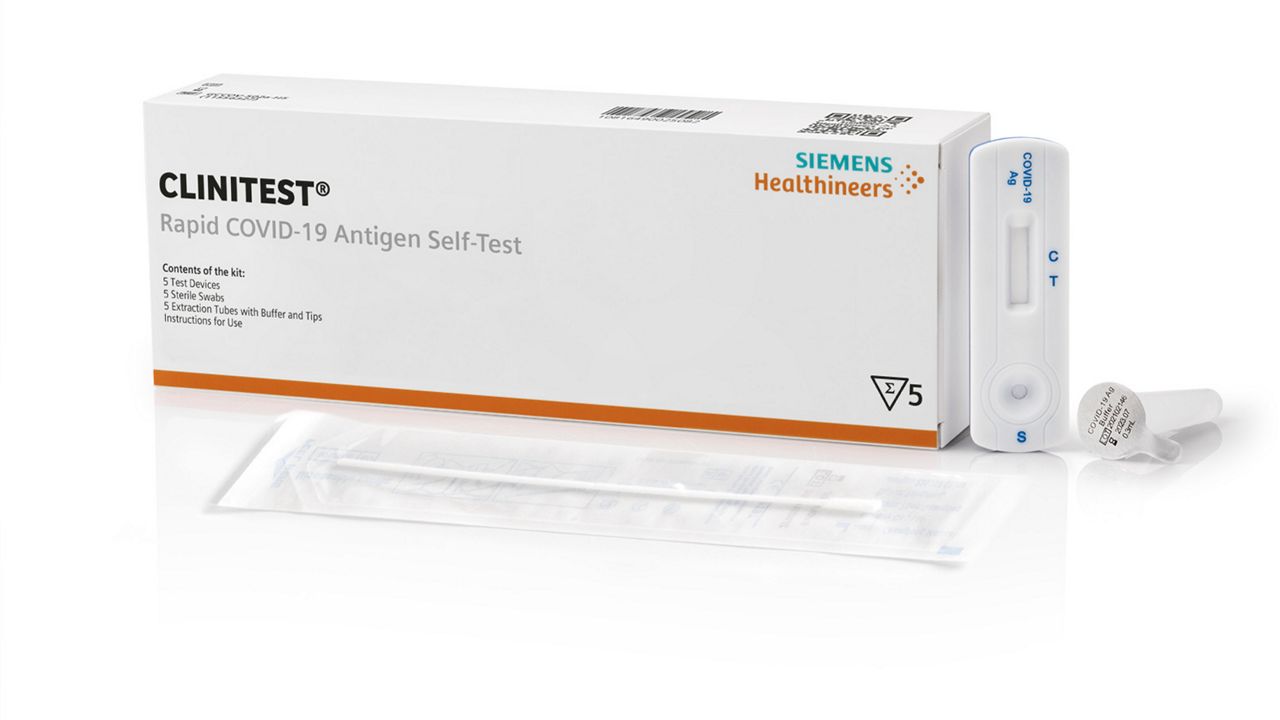The U.S. Food and Drug Administration in recent days has authorized two new at-home COVID-19 tests — thanks to a program funded by President Joe Biden's COVID relief bill — amid growing demand bolstered by rising coronavirus cases.
The FDA on Wednesday granted Emergency Use Authorization to Siemens Healthineers' CLINITEST Rapid COVID-19 Antigen Self-Test for individuals 14 and older, as well as samples from individuals 2-13 collected by an adult.
“Undetected COVID-19 exposure is a major driver of community spread,” Christoph Pedain, PhD, Head of Point of Care Diagnostics, Siemens Healthineers said in a statement. “With the CLINITEST Rapid COVID-19 Antigen Self-Test, consumers will have access to a fast, reliable, and convenient test to provide additional safety.”
The move comes less than one week after the regulator authorized an at-home rapid test manufactured by SD Biosensor and distributed by Roche, which can also be used by people as young as 14 years old.
"Increasing Americans' access to easy-to-use, reliable COVID tests is a top priority for the Biden Administration, and we are using all resources at our disposal to make more tests available and ramp up supply," Health and Human Services Secretary Xavier Becerra said in a statement Wednesday. "Adding two new authorized tests will give Americans more options for testing at home, which helps keep people safe and provides peace of mind.”
Combined, HHS estimates, the two companies can produce tens of millions of tests per month in the United States.
HHS announced in October that the Biden Administration would invest $70 million from the American Rescue Plan — President Biden’s $1.9 trillion COVID-19 relief bill — “help bring more high-quality, at-home tests onto the market.”
The Roche and Siemens tests are the first tests to gain FDA authorization through the program known as the Independent Test Assessment Program (ITAP), which helps “identify manufacturers of high-quality tests and encouraging them to bring those tests to the U.S. market, increasing options for people and overall supply and potentially lowering costs.”
The goal of the ITAP program, per HHS, is to “accelerate the availability of more high-quality, accurate and reliable over-the-counter tests to the public as quickly as possible.”
"This program is incredibly beneficial to increasing access to rapid tests by quickly and consistently gathering the critical data companies need to request EUA and subsequently enter the U.S. market once authorized," Jeff Shuren, director of the FDA's Center for Devices and Radiological Health, said in a statement. "Knowing these tests have been independently assessed by NIH allows the FDA to act quickly on well-performed studies and trustworthy data that will lead to the availability of additional accurate and reliable tests at this critical time."
The move comes as the Biden administration is finalizing its purchase of a half-billion at-home, rapid COVID-19 tests; President Biden seeks to launch a new nationwide testing push that includes shipping tests to Americans starting in January.
"We’re actively working to finalize the distribution mechanism – which includes a website where people will be able to order tests for free – and we’ll share more details in the days ahead," a Biden administration official told Spectrum News.
The purchasing agreements for the 500 million test kits are being negotiated on an “accelerated timeline,” officials said, and are expected to be complete by late next week, as the administration also irons out a new website and shipping system to distribute the tests.
President Joe Biden first announced the plan to purchase 500 million at-home tests a few days before Christmas Eve, and the details are in the works.
The Departments of Defense and Health and Human Services are in charge of negotiating contracts with manufacturers, and the 500 million tests will be a combination of eight different at-home tests authorized by the Food and Drug Administration, the White House press secretary said.
"The Department of Defense and HHS are already executing on an accelerated contracting timeline," a Biden administration official told Spectrum News. "Companies are already submitting information, and we expect the contract to be completed late next week."
On Thursday, the DoD awarded a $136.7 million contract to MilliporeSigma, a subsidiary of Merck, to produce a key component of rapid COVID-19 tests, which the department says can lead to production of more than 83.3 million tests a month.
The contract with the Burlington, Massachusetts-based MilliporeSigma will allow the company to boost nitrocellulose membrane production capacity, the paper which shows rapid test results, a critical component of COVID-19 rapid tests.
The effort will allow the company to “establish a nitrocellulose manufacturing capability” at its facility in Sheboygan, Wisconsin “to support more than 83.3 million tests per month for COVID-19 testing and future needs.”
As COVID-19 cases have surged to their highest levels on record in recent days, major retailers like Amazon, CVS and Walgreens have placed limits on how many at-home tests shoppers can buy.
Spectrum News' Austin Landis contributed to this report.



